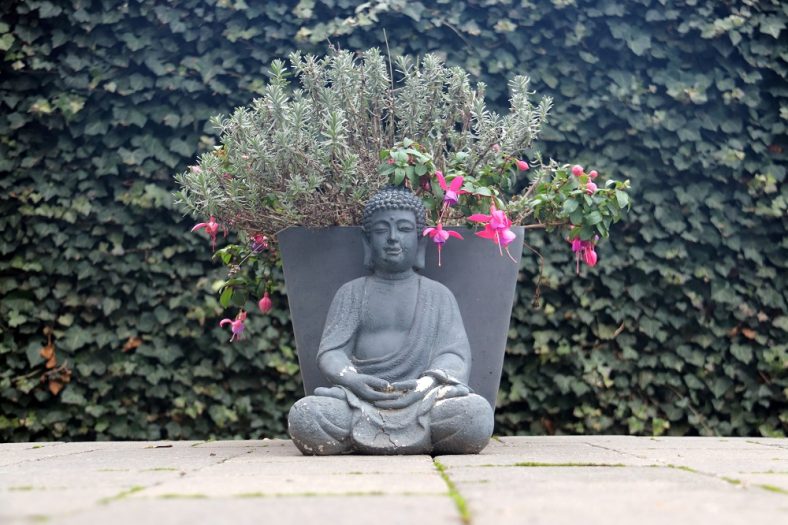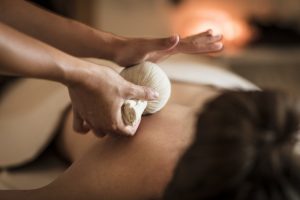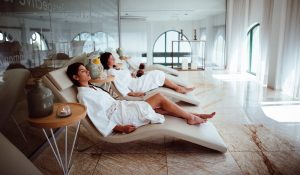Wellness professionals, practice relaxed with voluntary standards

Sophrology, thalassotherapy, health clubs… Many activities revolve around well-being. But the quality of performance is not always up to scratch, and new disciplines are emerging. To frame methods and define best practices, professionals are turning to voluntary standards. With the help of AFNOR
Spas, wellness tourism, sophrology, thalassotherapy, beauty treatments… Today, taking care of oneself can be combined in infinite ways, in both the physical and psychological spheres, with or without a medical approach. Faced with an ever-increasing range of products and practices, consumers can sometimes find themselves at a loss. Even the vocabulary has not stabilized: from one player to another, a discipline does not cover the same reality.
To set the framework, define best practices, establish a common language and ultimately inspire confidence, there’s a little-known tool: the voluntary standard. In the collective imagination, the norm conjures up an image of harshness, even confinement, which is the antithesis of the notion of well-being. But we need to look beyond this apparent contradiction to appreciate the virtues of standardization. What’s more, the standard doesn’t come from the top down: it’s the professionals themselves who come to AFNOR to draw up the standard…. at their request!

A new AFNOR standardization commission on sophrology
The Chambre Syndicale de la Sophrologie carried out this exercise two years ago(see also the interview with its president). ” The round table is being put together, so that the general interest is perfectly represented; now it’s time for the first meetings of the brand-new standardization committee on the subject,” says Amy Michel, project manager who will lead the first one on behalf of AFNOR on January 31, 2019. Are you in the area? Get in touch with AFNOR to take part!
Among other players, practitioners of course, but also other partners linked to the profession, such as insurers. “Even if the probability of a dispute or incident with a client is low in sophrology, since there is no physical contact, we need to be able to circumscribe the risks associated with the profession. This standard will help us to do just that,” says Marie Clerc, general agent at Axa, which has signed a group contract with the Chambre Syndicale de la Sophrologie to insure its members against professional civil liability. Today, the only criteria insurers have for insuring a sophrologist are a Siret number, proof of membership of the Chambre syndicale de la sophrologie, and a certificate or diploma. In the future, the standard will enable us to fine-tune cover to meet the specific needs of the sophrologist profession.
 Fitness centres: standards to define best practices
Fitness centres: standards to define best practices
In the wellness market, standardization can be a key differentiating factor. For fitness establishments, the scope of the standard covers both design (premises, facilities, equipment, etc.) and operation (coaching services, personalized follow-up, etc.). It therefore provides valuable insight for the member into the service on offer. But a voluntary standard is never completely set in stone. Evolutive by nature, it is regularly revised to take account of market innovations, the latest fitness equipment, and new health and safety requirements.
What’s more, the French voluntary standard, which AFNOR drew up on the initiative of the Ministry of Sports in 2011 under the title XP S52-412, will soon evolve into a European standard. Why not join the project committee? This future text, to be known as NF EN 17229, will classify fitness centers into three categories according to the level of supervision offered. It will also specify operating requirements and the information to be provided to members, even going so far as to regulate the use of dietary supplements offered for sale. In this way, the newly standardized gym will be able to guarantee quality products, with no side effects and no doping molecules. An additional guarantee of confidence for users, whether top-level athletes or occasional users.

Sport and health: voluntary standards soon to serve as a safeguard
In the wellness sector, the diversity of players and new uses is such that standards can only be beneficial, in order to speak the same language and share best practices. The popularity of aromatherapy, a wellness discipline based on the use of aromas derived from plants, is another illustration. Although essential oils are free to sell, their use is not without risk. Over time, a number of normative documents drawn up by industry professionals under the aegis of AFNOR have helped to build a quality benchmark for products, from production to sale, for better therapeutic and health-saving use (see also Box 2).
For Florent Giraud, standards project manager at AFNOR, ” the standard is the perfect accompaniment to the new challenges facing society “. Making prevention a public health imperative is now fundamental. This is the case of health sports, which are still too unexplored. The recent decree on sports on prescription (March1, 2017), which enables healthcare professionals to prescribe physical activity adapted to their patients’ pathology, highlights the expectations of the healthcare sector to order services from practitioners or establishments that comply with hygiene, quality and safety standards. Here too, a voluntary standard could act as a safeguard.

New standards on hypoxia
As new practices emerge, the need for standardization increases. It is often the absence of a regulatory framework that motivates professionals to approach AFNOR to legitimize and develop their activity. A designer of hypoxic chambers based in the Hauts-de-France region recently contacted the standardization team. The technique involves simulating altitude, with oxygen depletion optimizing the individual’s performance. Useful for top-level sport, but also for other leisure and wellness activities: hypoxia is presented as a means of developing breath to increase energy, improve sleep quality and reduce the stress of daily life. “ For this company, a standard attesting to the benefits of the service makes perfect sense”, explains Grégory Berthou, development manager for the consumer goods, sports and leisure markets at AFNOR, who examined the application. This specialist could also have cited the wellness spa sector, which has also resorted to standardization. Or thalassotherapy, an activity for which a standard published in 2014 limited the appellation to seawater-based treatments, so as not to mislead the user.
Whether they relate to quality of welcome, quality of service, skills or even hygiene and safety, wellness care professionals want shared requirements to be set down in a document that commands consensus: the voluntary standard. As, indeed, have their colleagues in the beauty industry, who have understood the value of standardization work in helping the development of new practices such as nail styling, eyelash styling and permanent make-up. Quality, safety, confidence: the trifecta of standardization!

Why dedicate a standard to the profession of sophrologist?
Well-being professions, and sophrology in particular, respond to a social and public health challenge. Health practitioners frequently rely on sophrology to manage their patients’ pain and stress. They are then prescribers themselves, and sophrology represents a beneficial complement to treatment. Gradually, the need to lay down more “rules” in order to define an industry standard became apparent, in response to the expectations of public authorities, GPs, insurance companies and, of course, professionals and the general public.
Are standards and well-being compatible?
Without a framework, it’s hard to measure the quality of a service. That’s why it’s essential to define, among other things, the sophrologist’s good practices and ideological stance. Unlike a doctor, a sophrologist makes no diagnosis and prescribes no treatment. The individual is invited to work on him or herself, but this does not exempt the practitioner from providing a framework for what he or she will propose during the coaching. The sophrology technique dates back to the 1960s and has evolved considerably over the years. Initially, it was a therapeutic vision aimed at the development of the individual; some still practice it like that today, while others give it a more spiritual dimension. We could well imagine the standard specifying what does not belong to the sophrologist’s role, or what he or she should not propose.
Does a standard benefit everyone?
The development of a standard is always a cause for concern. However, the sophrology community (9,100 professionals in our union) is generally enthusiastic about the project. The standard is expected, otherwise we wouldn’t have approached AFNOR. A recent survey we commissioned from BVA (carried out in November 2018 among a sample of 973 people representative of the French population aged 15 and over who had never practiced sophrology) moreover revealed that its creation inspired confidence and envy. It is therefore essential that we reach a consensus to guide professionals in their work and reassure practitioners.
 Standards and aromatherapy, a well-oiled story
Standards and aromatherapy, a well-oiled story
Diffused, ingested or applied directly to the skin, essential oils preserve and enhance our well-being. Aromatherapy is also a discipline fond of standardization. ” For each type of oil and aroma, the standard proposes several criteria, such as the composition or origin of the plant raw materials (‘French thyme’, ‘Spanish sweet orange’, etc.). This is to ensure quality and efficiency, but also to combat fraud, says Laura Solaroli, project manager who leads the AFNOR standardization commission on this subject. The demand for standardization often comes from manufacturers themselves. Today, 135 standards are already referenced in sectors as diverse as perfumery and cosmetics, the food and pharmaceutical industries, cleaning products, home fragrances and plant protection applications. A diversity of sectors for whom the standard is a real guarantee of confidence, all the more so when it is international. As such, Laura Solaroli’s commission follows the work of ISO TC 54.
Find out more:
> Join the AFNOR standardization commission on sophrology
> Join the AFNOR standardization committee on essential oils
> Join the AFNOR standardization commission on fitness centres
> Buy the XP S52-412 voluntary standard for gyms
> Buy the NF EN ISO 3218 voluntary standard on essential oils